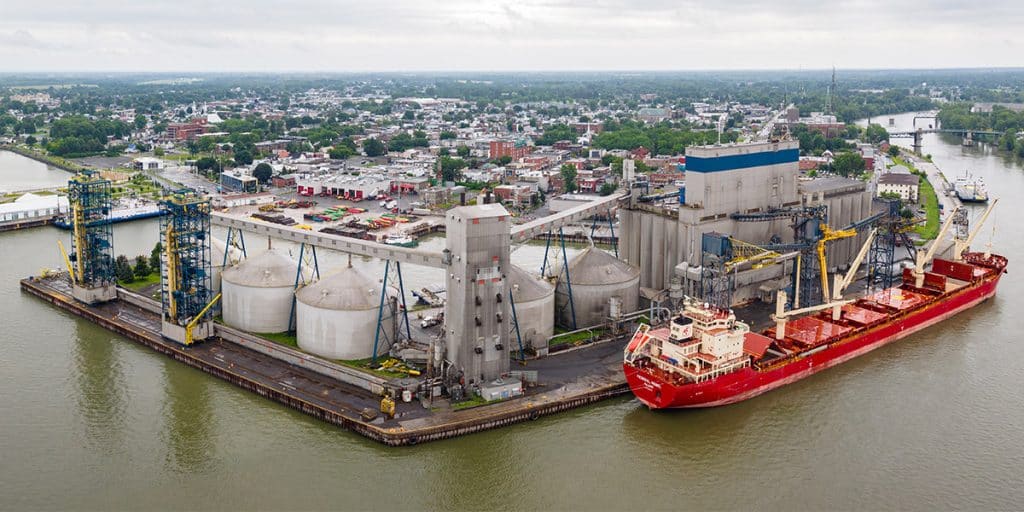
On the banks of the St. Lawrence River, Richardson International’s Sorel-Tracy grain terminal has long served as a vital bridge between Quebec farmers and global markets. As one of the few Eastern Canadian terminals with deep-water access, Sorel’s year-round, reliable shipping routes are critical to international buyers and to Canada’s reputation as a dependable supplier.

Senior Vice-President, Corporate Affairs & General Counsel
Richardson International
This advantage matters to Quebec farmers, who harvest more than 6 million tonnes of corn and soybeans annually, with roughly 1.5 million tonnes moving through Sorel. Those shipments connect directly to markets in Europe, South America, and Africa. Without this gateway, much of Quebec’s grain would face longer, more costly export paths — affecting farmers’ revenues and Canada’s standing as a trusted trade partner.
“Canadian farmers compete in one of the most demanding global marketplaces,” says Jean-Marc Ruest, (Senior Vice-President, Corporate Affairs & General Counsel). “Delivering high-quality crops is only half the equation. We also need to deliver them reliably and efficiently. The Sorel terminal is a vital piece of this puzzle, adding to Canada’s positive reputation on the global stage.”
A Source of Economic Growth
The terminal’s impact goes well beyond logistics. Operating just metres from Sorel-Tracy’s downtown core (a rarity for a major industrial site), Richardson takes a special interest in giving back to the community it operates in. It’s estimated that the Sorel facility contributes more than $6.5 million annually to the local economy by working with nearby businesses, and through The Richardson Foundation, $2 million dollars has been invested into local initiatives across the region. Benoit Soucy (Vice-President, Terminal Operations) says this level community investment is a reflection of Richardson’s long-standing values.
“For us to participate and invest in the community is a core part of Richardson’s culture,” Soucy explains. “Our employees and customers live in these communities, and especially in Sorel-Tracy, where our facility is part of the downtown, we want to be not just a passing presence, but an active member of the city.”
Managing Challenges Responsibly

Vice-President, Terminal Operations
Richardson International
Operating a grain terminal in close proximity to residents comes with its challenges. Among them: dust generated from the movement of crops. While Richardson acknowledges that some dust is inevitable in grain handling, the company has invested in a range of mitigation measures, dedicating millions to date in enclosed loading systems, misting technology, and other updated operating practices.
“We recognize the concerns of our neighbours,” Soucy says. “That’s why we continue to invest in improvements every year to minimize our impact and ensure we can operate responsibly within the community.”
Built for the Long Term
Nearing a century in operation, continued investment in the Sorel terminal is essential to its community and is key to remaining a competitive force. As demand for Eastern Canadian crops grows, the facility has become a trusted hub for local producers, ensuring they remain relevant among global supply chains. “The terminal keeps Quebec agriculture globally connected,” notes Soucy. “By committing to annual capital upgrades and increasing efficiency, we’re ensuring the facility stays resilient for the next 100 years.”
Balancing Global Reach with Local Responsibility
For Richardson, the Sorel-Tracy terminal is much more than an export facility. It is a testament of Canada’s ability to compete in global agriculture, a force in Quebec’s economy, and a symbol of Richardson’s commitment to operating responsibly. By balancing global reach with community responsibility, Richardson is ensuring that Sorel-Tracy remains a key player in Canada’s supply chain for generations to come.
